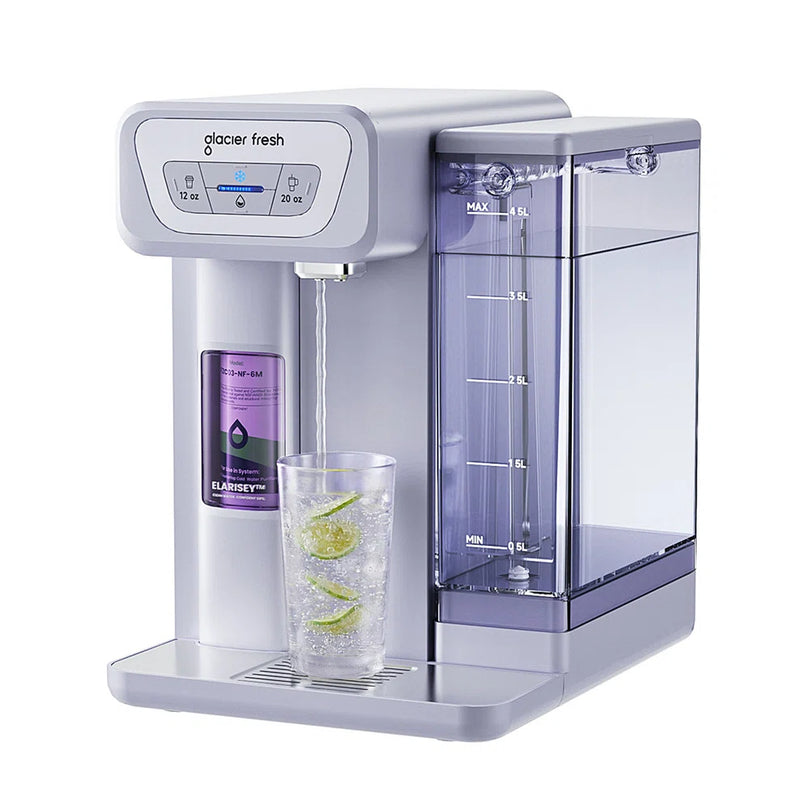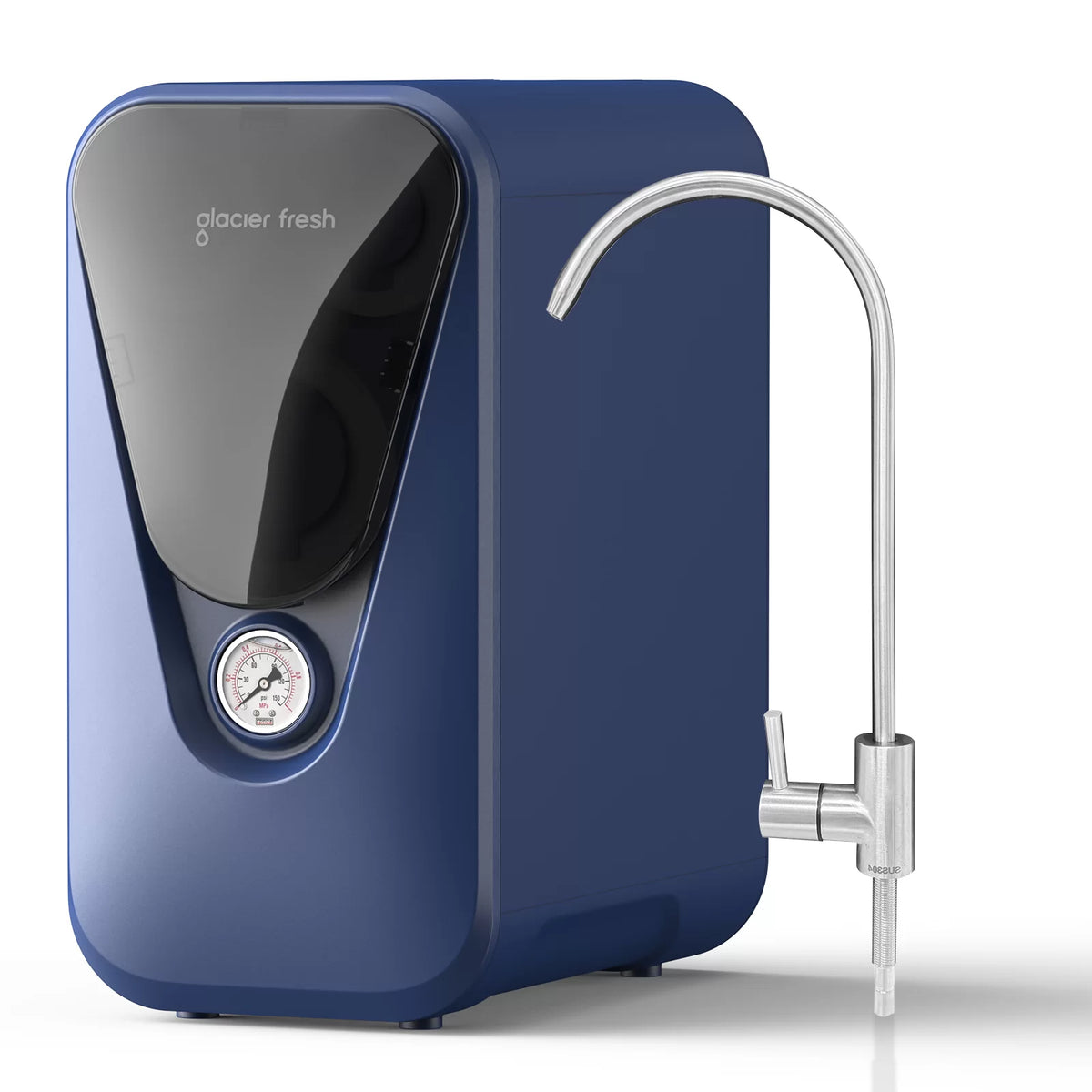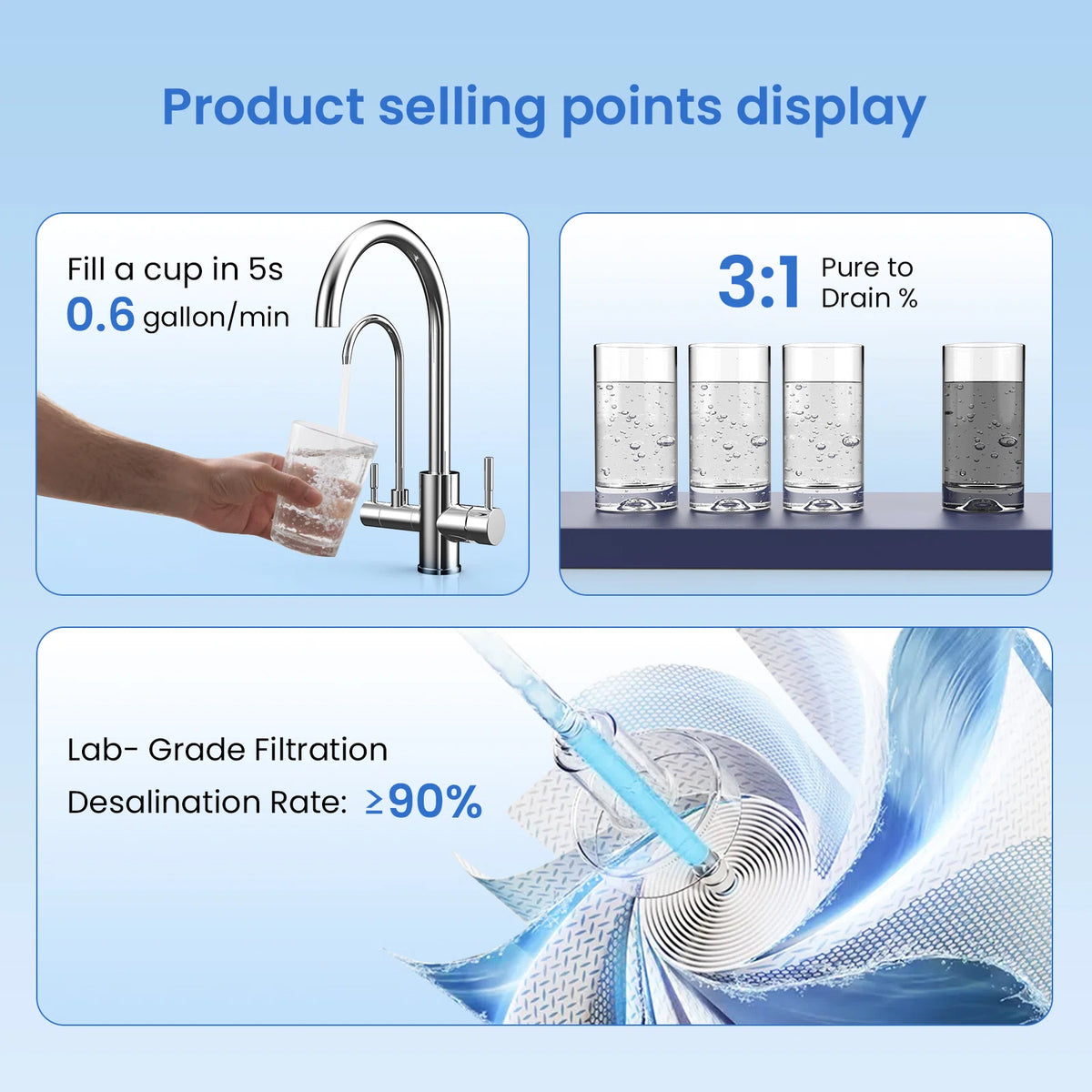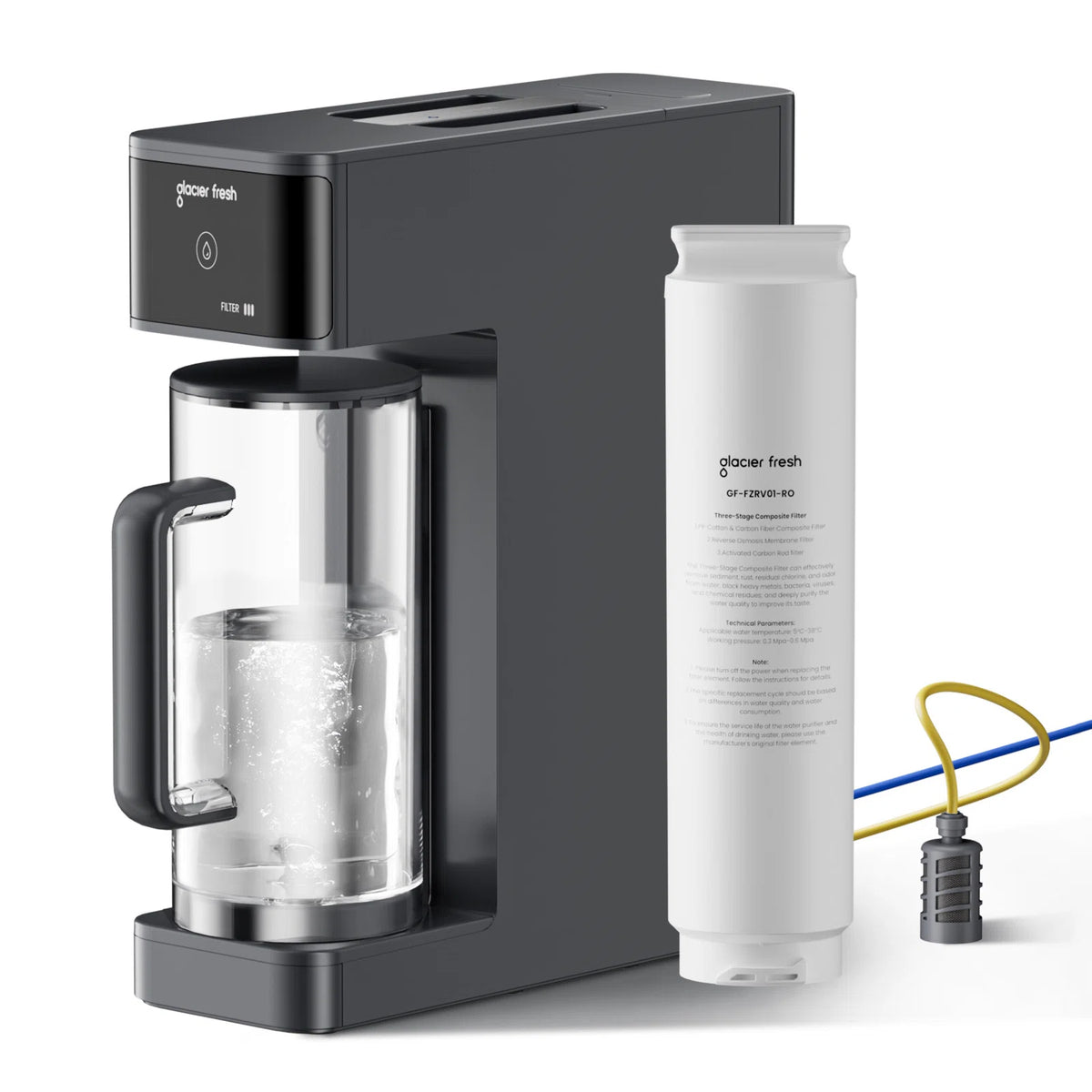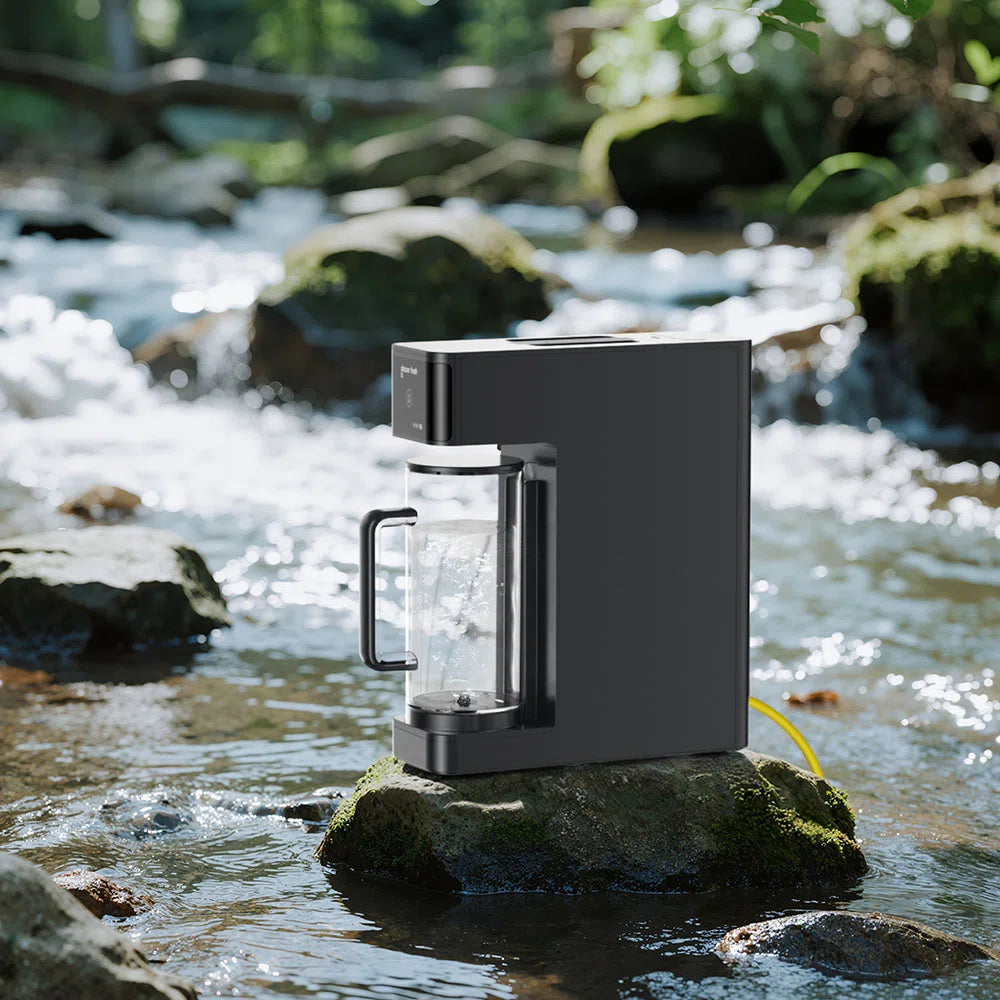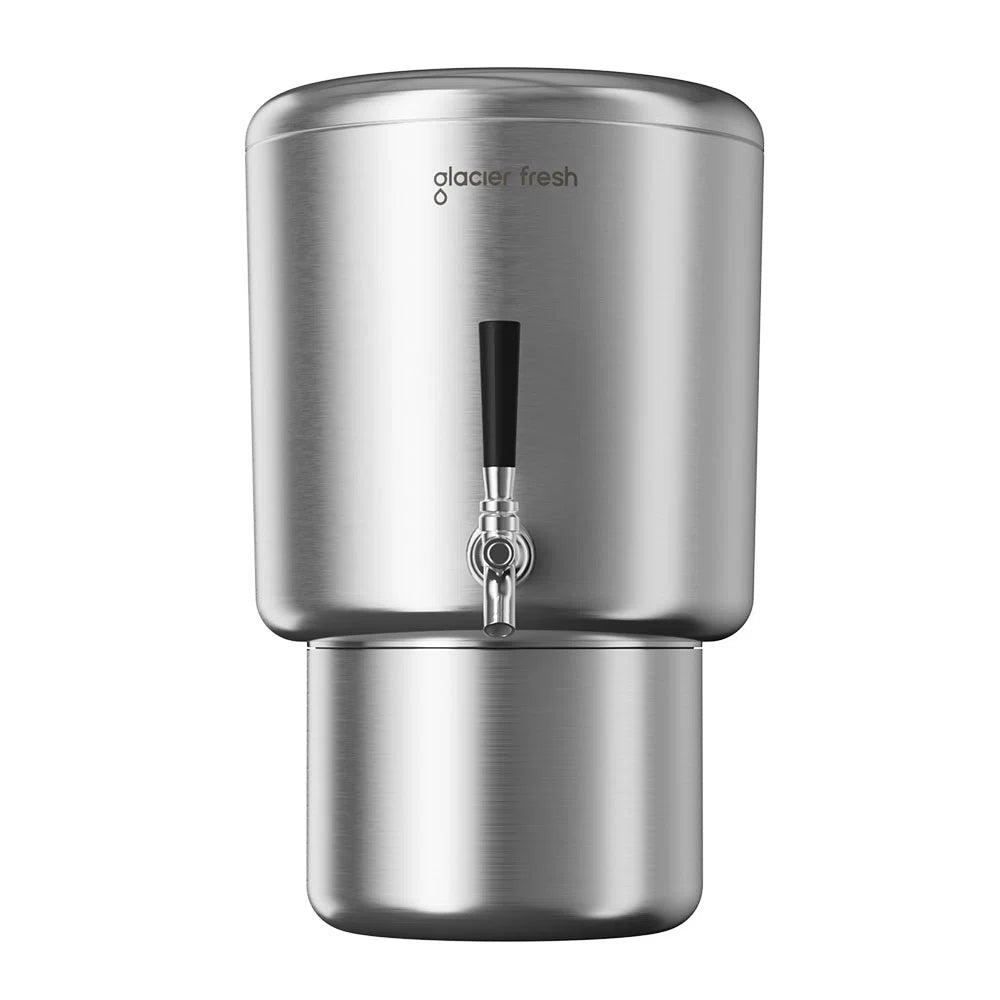Table of Contents:
The definition of deionized water
Is deionized water safe to drink?
How is deionized water produced?
Different types of deionized water
Applications of deionized water
Advantages and disadvantages of deionized water
Differences between deionized water and other purified water
FAQs
Conclusion
Are you curious about deionized water? What is it, and how is it made? Look no further! In this article, we'll explore the definition of deionized water, its production process, and the available types. We'll also delve into the various applications of deionized water and discuss its advantages and disadvantages. Additionally, we'll compare deionized water to other purified water options. Get ready to quench your thirst for knowledge!
The definition of deionized water

Deionized water is a type of water that has had its mineral ions removed, resulting in a highly purified form of water. This process involves the removal of charged mineral ions such as calcium, magnesium, sodium, and chloride through a purification process called deionization. Deionization typically involves passing the water through ion exchange resins or membranes that attract and remove the mineral ions, leaving water free from impurities.
Is deionized water safe to drink?
If you're wondering about its safety for consumption, drinking deionized water is generally not recommended due to its lack of essential minerals. Here are a few points to consider:
- Health risks: Deionized water lacks minerals essential for our bodies, such as calcium, magnesium, and potassium. Consuming water without these minerals can lead to mineral deficiencies and potential health issues.
- Environmental impact: Deionizing water requires special equipment and chemicals, which can have negative environmental impacts. The production and disposal of these chemicals can contribute to pollution and harm ecosystems.
- Alternatives to deionized water: Instead of drinking deionized water, you can opt for filtered or spring water, which retains natural minerals. These options provide the necessary minerals while still ensuring safe drinking water.
It's important to note that deionized water is used in various industries, such as electronics manufacturing and laboratory settings. Additionally, it's commonly used in home appliances like steam irons and humidifiers. However, it's best to choose alternatives that provide essential minerals for your overall health and well-being when it comes to drinking water.
How is deionized water produced?

To produce deionized water, you start by purifying regular water through deionization. Several methods are involved in the production process, each with its benefits and drawbacks. Here are three standard techniques used:
- Ion Exchange: This method involves passing the water through ion exchange resin beds, where ions are exchanged with hydrogen and hydroxyl ions. This process effectively removes dissolved minerals and salts from the water.
- Reverse Osmosis: In reverse osmosis system, water is forced through a semipermeable membrane that only allows water molecules to pass through, effectively filtering out impurities. This process is particularly effective in removing larger particles and organic compounds.
- Distillation: Distillation involves heating the water to create steam, which is then condensed into liquid form. This process effectively removes contaminants with higher boiling points than water, leaving pure water behind.
Resin regeneration is necessary to ensure the continued effectiveness of the purification process. This involves treating the exhausted ion exchange resin with chemicals to remove the accumulated impurities. This allows the resin to be reused and maintains the quality of the deionized water produced.
Different types of deionized water
Various types of deionized water can be produced using the ion exchange process and strict quality control measures. These different types of deionized water serve various purposes and have specific qualities. Here are four types of deionized water:
- Laboratory-grade deionized water: This type of deionized water goes through rigorous purification processes, ensuring it's free from impurities and suitable for laboratory experiments and analysis.
- Pharmaceutical-grade deionized water: This type of deionized water is produced to meet the stringent standards of the pharmaceutical industry. It undergoes additional purification steps to ensure it's sterile and safe for use in drug manufacturing.
- Ultra-pure deionized water: This type of deionized water is purified to the highest level and is free from any impurities, making it ideal for critical applications such as semiconductor manufacturing.
- Industrial-grade deionized water: This type of deionized water is used in various industries for rinsing, cooling, and steam generation. It's produced to meet the specific requirements of each industry.
It's important to note that deionized water differs from distilled water, as the former removes both organic and inorganic impurities, while the latter only removes organic contaminants. Industrial uses of deionized water include car washing, metal plating, and power generation.
Applications of deionized water

You can utilize deionized water in various applications due to its high purity and absence of impurities. Here are three uses of deionized water that highlight its benefits:
- Quality Control: Deionized water is commonly used in laboratories and manufacturing industries for quality control purposes. Its purity ensures accurate and reliable test results, making it ideal for experiments, calibration, and testing of various products.
- Storage: Deionized water is often used to store sensitive equipment and materials. Its lack of impurities prevents corrosion and buildup, ensuring the longevity and proper functioning of the stored items. Whether it's storing medical instruments, electronic components, or even car batteries, deionized water provides a safe and clean environment.
- Safety Precautions: Deionized water is preferred for safety-related applications, such as fire extinguishers and emergency showers. Its purity minimizes the risk of contamination and ensures effective performance during emergencies. Additionally, deionized water is also used to produce cosmetics and pharmaceuticals, where the absence of impurities is crucial for product safety and effectiveness.
When using deionized water, it's essential to consider proper storage practices and safety precautions. Ensure containers are clean and sealed tightly to maintain the water's purity. Additionally, be cautious when handling deionized water near electrical equipment to prevent any potential damage.
Advantages and disadvantages of deionized water
Due to its unique properties, deionized water offers advantages and disadvantages in various applications. Understanding the pros and cons of deionized water can help determine its uses and limitations in different scenarios. Let's take a closer look at the benefits and drawbacks of using deionized water:

One of the significant strengths of deionized water is its ability to remove impurities. By undergoing the deionization process, it effectively eliminates minerals, salts, and other contaminants. This makes it ideal for preventing corrosion and scaling in various industrial applications. Additionally, deionized water improves cleaning by minimizing residue left behind. However, one of its weaknesses is the lack of essential minerals beneficial for human health. Furthermore, deionized water can be costly and has a relatively short shelf life. It also has low conductivity, which may limit its use in specific electrical applications. Lastly, deionized water requires specialized equipment, adding to the overall cost. Deionized water has pros and cons, and careful consideration should be given when deciding its application.
Differences between deionized water and other purified waterS

When comparing deionized water to other purified water options, it's essential to understand the differences between their properties and uses. Here are three key distinctions to keep in mind:
- Water purification methods: Deionized water is produced through a process called ion exchange, where ions are removed from the water. On the other hand, distilled water is created by boiling water and then condensing the steam, while reverse osmosis uses a membrane to filter out impurities. Each method has its advantages and limitations.
- Purified drinking water: Deionized water is primarily used in industrial applications, scientific research, and medical settings where the absence of minerals and ions is crucial. Distilled water is commonly used in laboratories and for appliances like steam irons. Reverse osmosis is often used in residential settings to provide drinking water free from contaminants.
- Filtration methods: Deionized water uses an ion exchange resin to remove cations and anions. Distilled water is produced by vaporizing water and then condensing it, leaving behind impurities. Reverse osmosis relies on a semipermeable membrane to filter out contaminants, including minerals, bacteria, and viruses.
Understanding these differences allows you to choose the most appropriate purified water option based on your needs and requirements.
FAQs
Does deionized water have any taste or smell?
Deionized water, devoid of impurities, lacks taste or smell. Its chemical composition, after undergoing water purification, makes it ideal for various industrial applications. Additionally, it provides health benefits due to its purity.
Are there any specific precautions or guidelines to follow when handling or storing deionized water?
When handling or storing deionized water, it is essential to follow precautions and guidelines. Handle it carefully and store it in clean, non-contaminated containers to maintain purity.
Is deionized water the same as distilled water?
Deionized water is not the same as distilled water. While both are purified, deionized water goes through an additional process to remove ions. It has many applications in industry, but its production can have environmental impacts.
Conclusion
Overall, deionized water is highly purified and free from ions and impurities. It's produced through various methods to remove mineral salts, making it suitable for many applications. Deionized water offers improved cleaning, reduced scaling, and increased equipment lifespan.
However, it also has some downsides, including its corrosive nature and the need for careful handling. Understanding the differences between deionized water and other purified water options is crucial for choosing the right type for specific needs. Follow Glacier Fresh to find more water filtration solutions.







